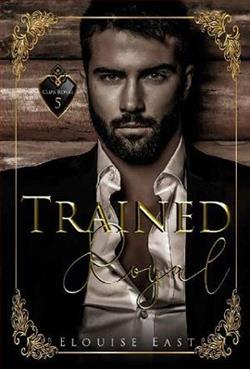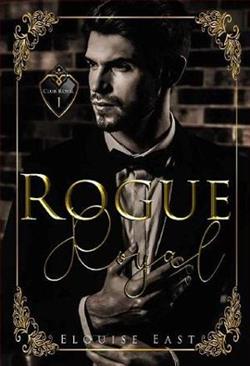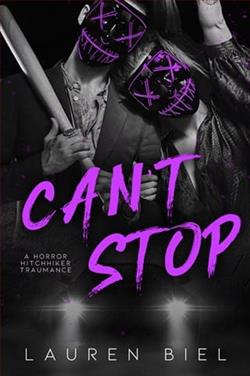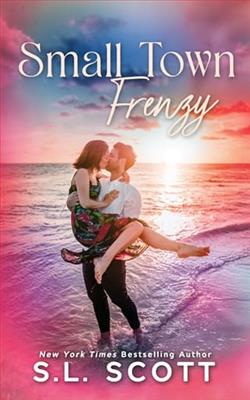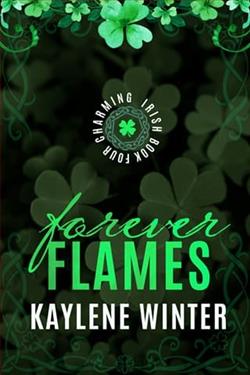Page 35 of It Happened on the Lake
He slammed his door shut and half ran past the life-sized statue of St. Catherine.
Inside, the hospital was a hodgepodge. Old and new. Redbrick and mortar from the turn of the century. Concrete and glass from the sixties. The most recent addition, now nearly twenty years old, was a modern wing of concrete and glass that had been erected in large part due to an endowment from the Olivia Dixon Foundation.
He made his way to the information desk, where a fussy-looking receptionist with teased hair and thick eyeliner was positioned in front of an oversized portrait of Olivia Dixon.
The receptionist pasted on a fake smile at his inquiry, then directed him to Harper Prescott’s private room on the third floor. He already knew where the Intensive Care Unit was. He stopped there first to get an update on Cynthia Hunt. It wasn’t good. With burns over fifty percent of her body, she was comatose and soon being transferred to a burn unit at a Portland hospital. What was left of her hair was singed, and she was wrapped in bandages, her chances for survival slim according to the doctor he spoke with. Rand hoped, for her sake, she never woke up.
He’d known her all his life.
She’d been his neighbor growing up, the mother of his best friend. He couldn’t count how many nights he’d spent in the Hunts’ rec room playing ping-pong or darts or just screwing around and playing records on their jukebox. Cynthia had always been there with pitchers of Kool-Aid or cans of soda and countless bags of potato chips. “You boys, keep it down,” she’d always say with a smile.
Those had been the happy days.
Before all the tragedy.
And now . . .
Reduced to this. He sent up a rare prayer to a God he’d left behind in the hot jungles of Vietnam, then left the ICU.
He made his way to the elevator and got off on the third floor.
Minutes later he was rapping softly on the open door of Harper Reed . . . no, Harper Prescott’s private room.
She lay in the bed, gazing out the window at the gray day beyond and obviously lost in thought.
The last time he’d seen her had been twenty years before, when they were just kids. He on his way to war, she still in high school, Chase Hunt missing.
“Harper,” he said as he rapped his knuckles on the open door again, a little more loudly.
She turned on the pillow, her face older than he remembered it, of course, her skin pale, her cheekbones more defined, her blue eyes more serious than they had been when she was a girl. A bandage swathed her chin, and there was bruising on her forehead, another bandage near her eye.
“Rand?” Her voice was stronger than he expected. “Rand Watkins?” Her eyebrows pinched together. “What’re you doing here?” She straightened in the bed and fussed with the neckline of her hospital gown.
When he flipped out his badge, she caught her breath. As if he’d startled her. Eyeing his ID, she said, “You’re with the police?” She looked up to meet his gaze, and something inside of him shifted. Something he didn’t want to think about.
“Yeah.” He nodded. “For about a dozen years now.”
“But I thought . . . I mean, didn’t you hate the fact that your dad was a cop?”
“Guess I changed my mind.”
Creases appeared on her forehead, and she let out a little sigh. “So, I guess you’re here because of last night.”
“I thought you might want to tell me about it.”
Her eyes narrowed a fraction, as if she didn’t quite believe him. But he knew the feeling. As a teenager he hadn’t trusted the cops even though his dad was a detective. But he wasn’t alone. Since he’d joined the force, he’d sometimes sensed that same distrust from both criminals and victims.
Harper was no different.
He had to remind himself of that fact as he heard a pager calling for Doctor Sanchez in the hallway outside the open door.
“How is Cynthia?” Harper asked.
“Don’t know.”
Again, that skeptical glance. More playing with the neckline of the drab gown. She swallowed, looked away, and whispered, “It . . . it was awful.”
“You recognized her?”








